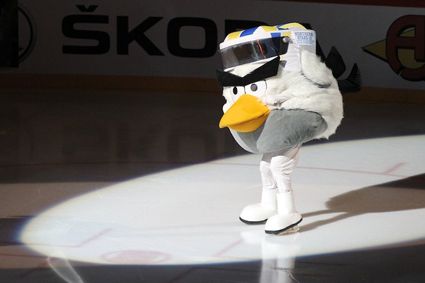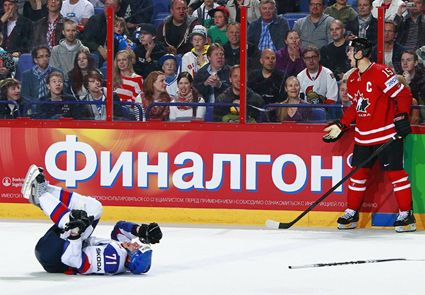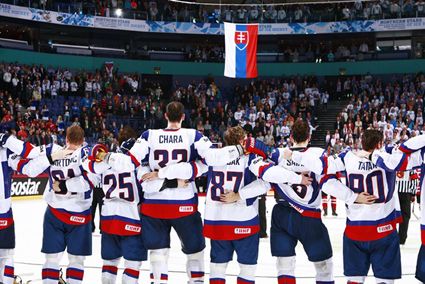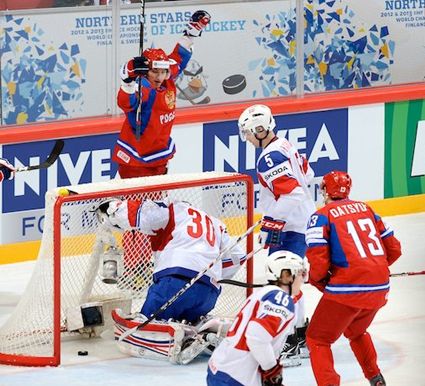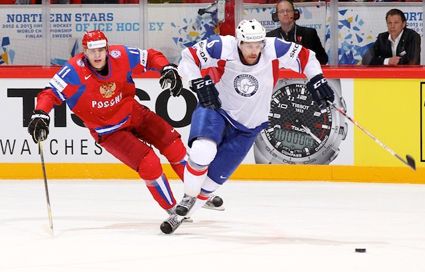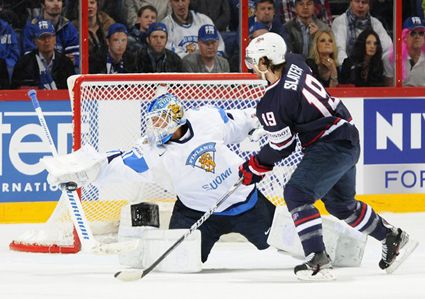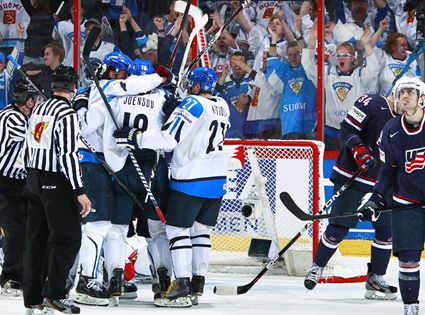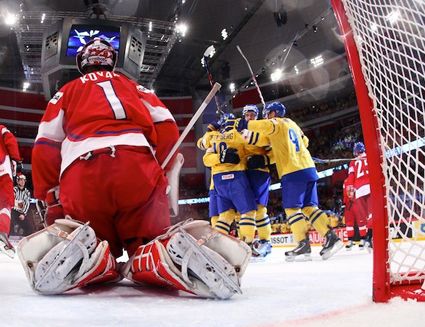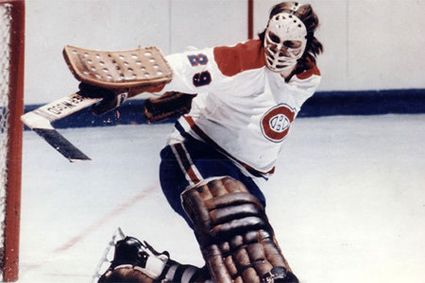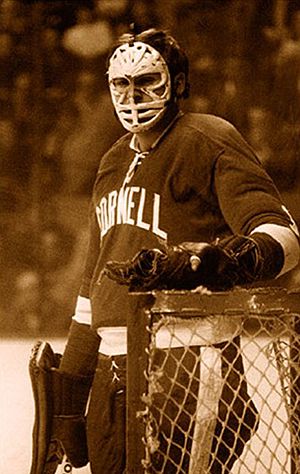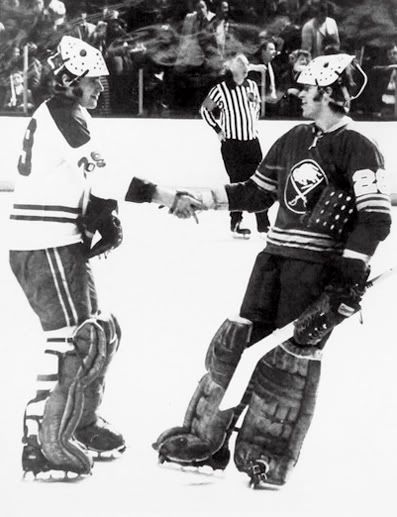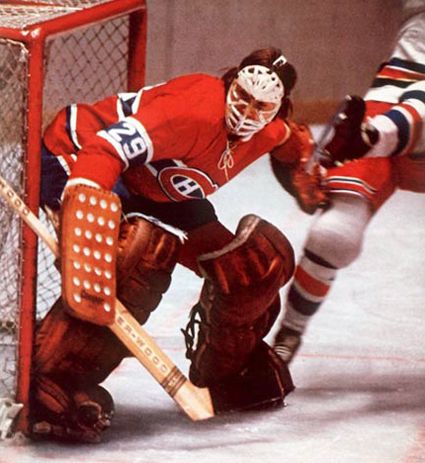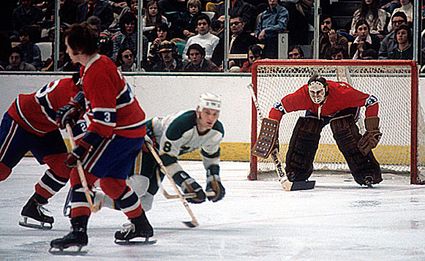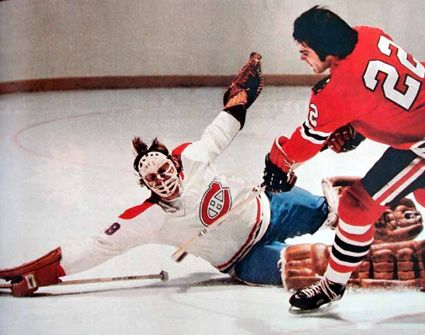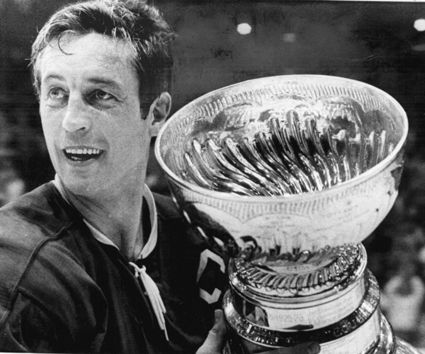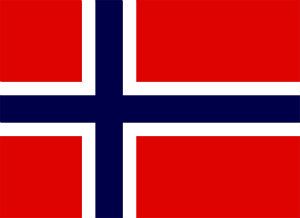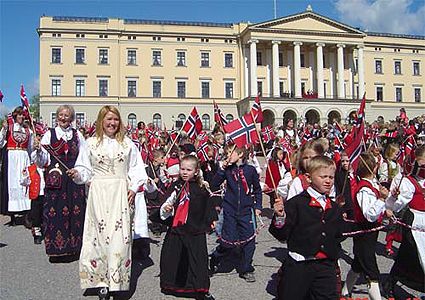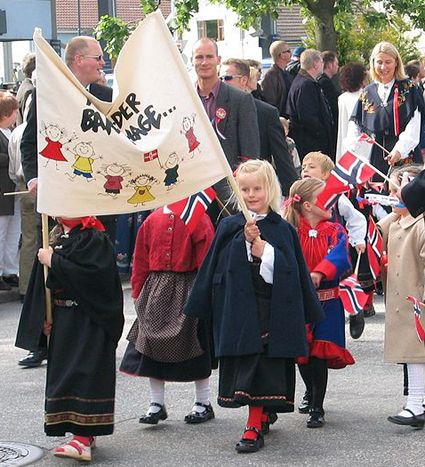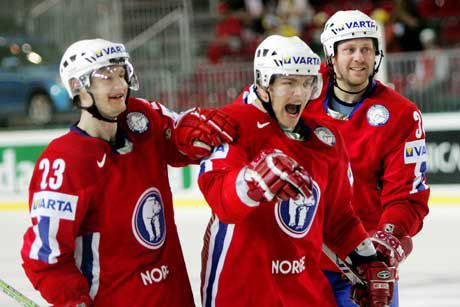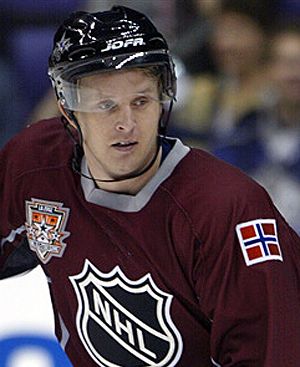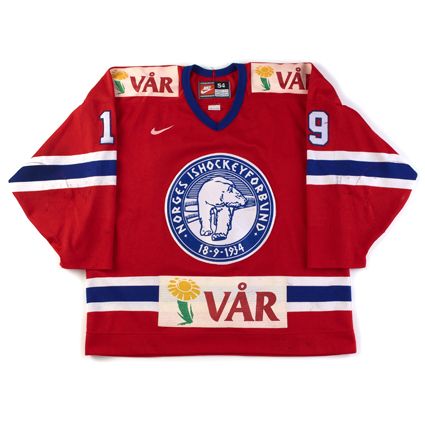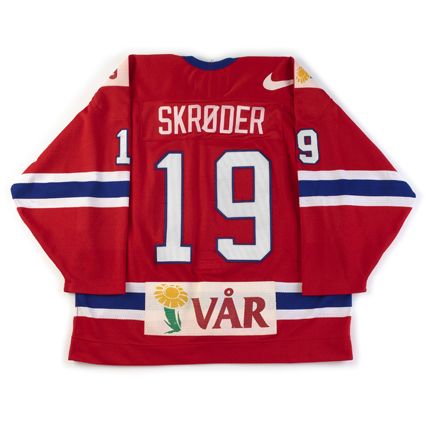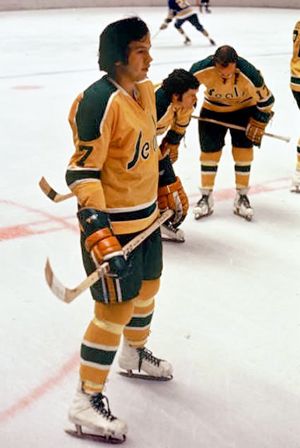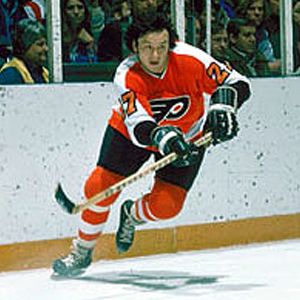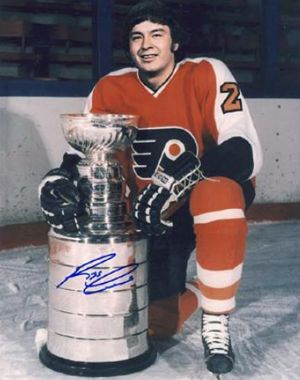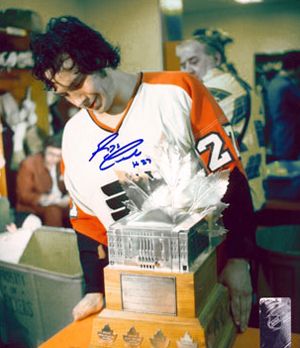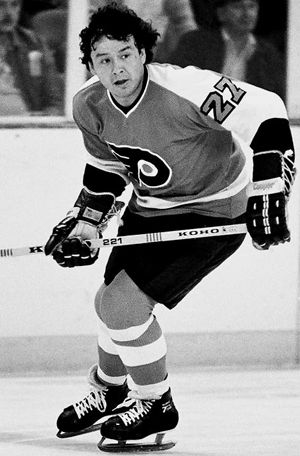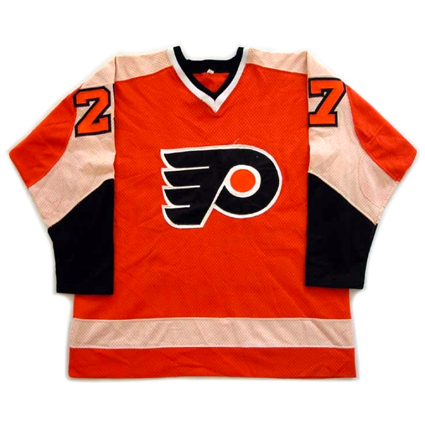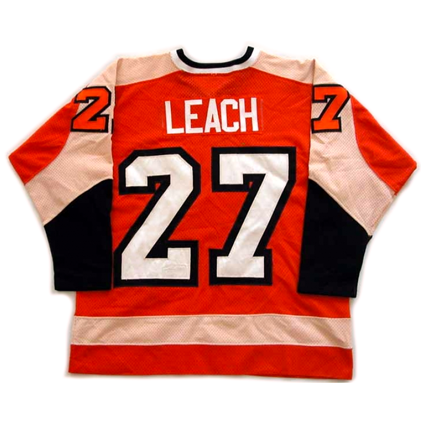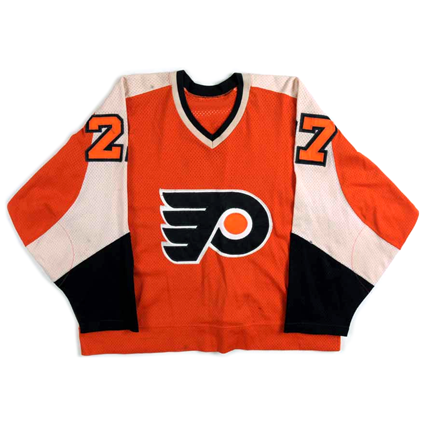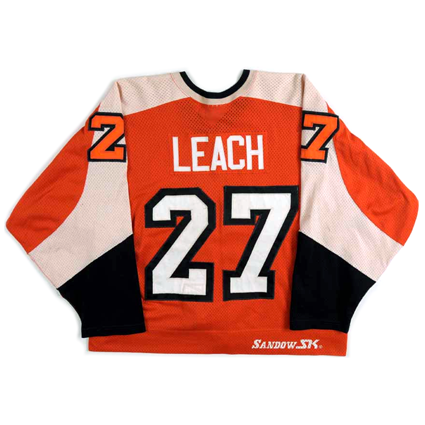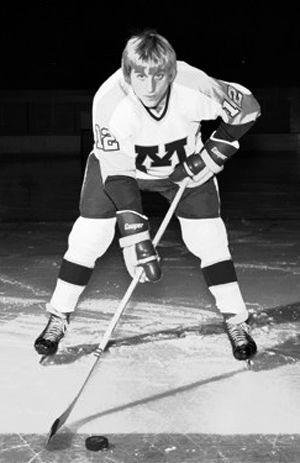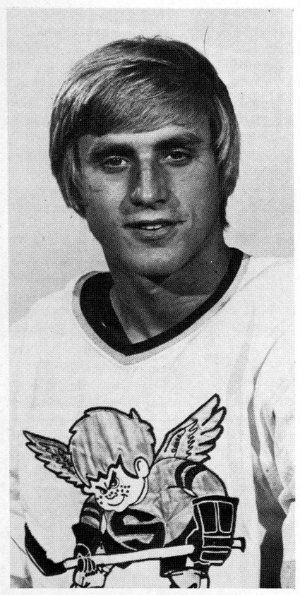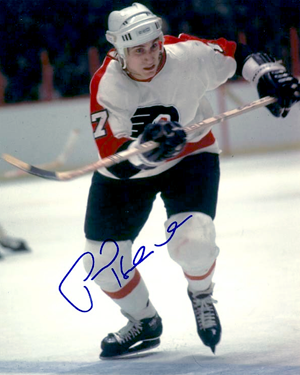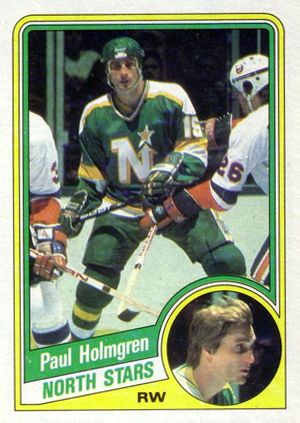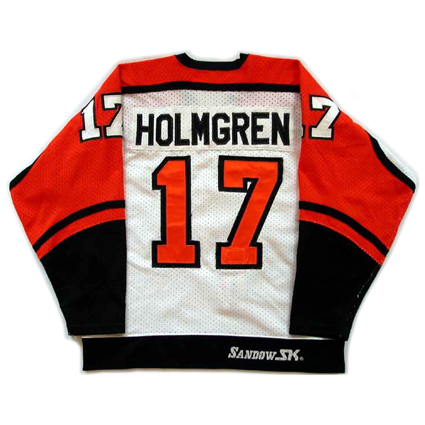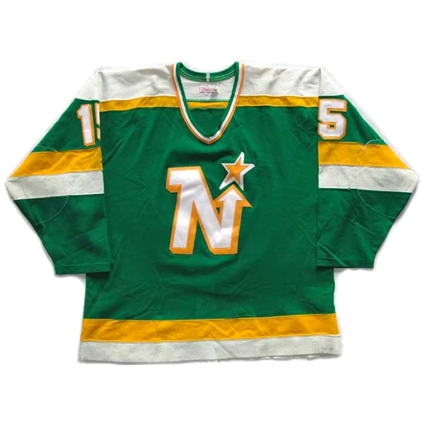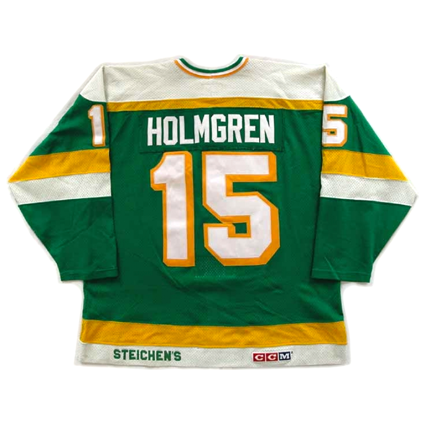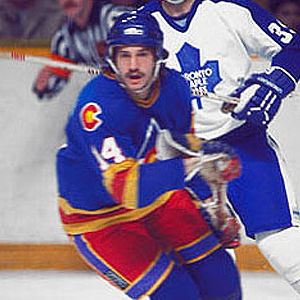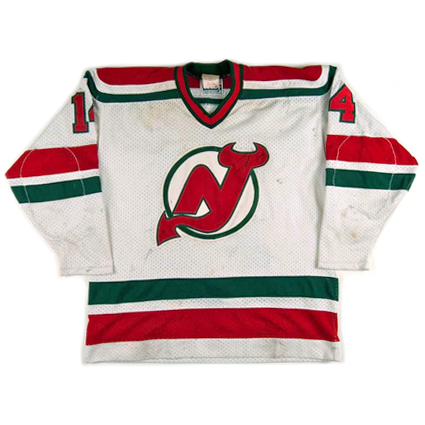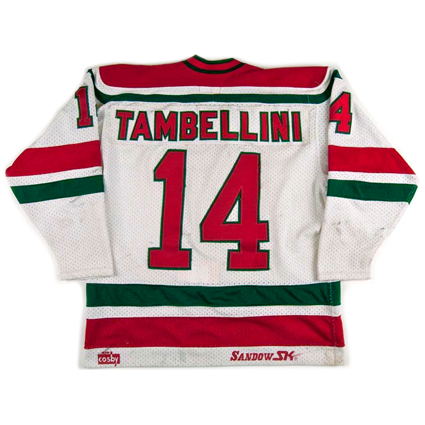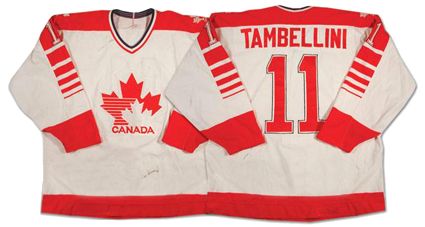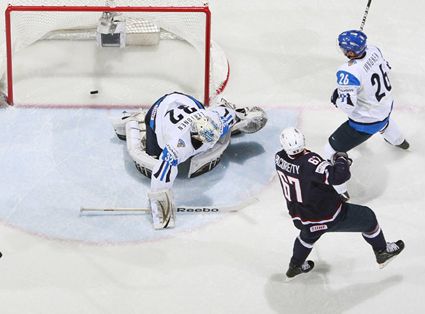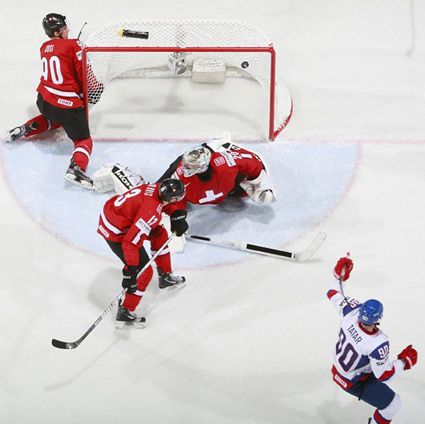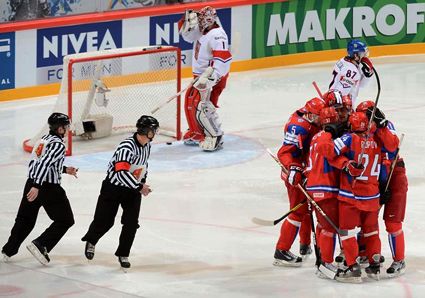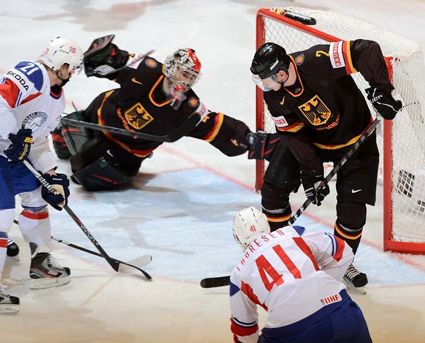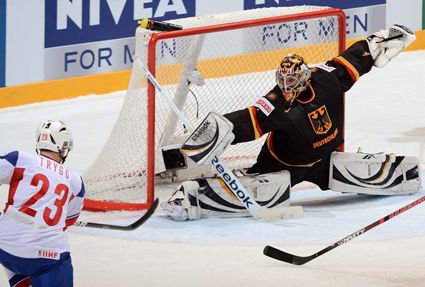Saturday, May 19, 2012
2012 World Championships Update
While some NHL-centric hockey fans deride the World Championships for it's often early lopsided scores and the fact many star players are still busy with their NHL seasons, the tournament inevitably provides some amazing games, with Thursday's 2012 World Championships Quarterfinals being exhibit #1.
Why is this bird so angry? He's at a hockey game!
The day started out bright and early in North America with Canada and Slovakia facing off at 6 AM eastern time. Canada, considered a clear favorite based on it's higher ranking internationally, having already defeated Slovakia 3-2 in their opening game of the tournament, and having won Group H.
That assumption was called into question when Slovakia opened the scoring when Tomas Kopecky converted at 5:57 of the opening period and captain Miroslav Satan stomped that notion into dust with the second Slovak goal before the period was even half over. Canada recovered with an Evander Kane goal at 16:14 from Ryan Getzlaf at 16:14.
Canada looked to be back in control with second period goals from Jeff Skinner and Alex Burrows to give the Canadians confidence heading into the third period of their elimination game.
If Canada thought they were going to shut down Slovakia, that plan went awry when Milan Bartovic evened the game, setting up a dramatic rest of the period. Canada outshot Slovakia 13-11, but the game turned when Getzlaf was whistled for a major penalty for kneeing Juraj Mikus at 57:28 as well as being ejected from the game.
With the extra man, Slovakia wasted no time in scoring when Michal Handzus fired one by Cam Ward just four seconds after the penalty call to put his team up 4-3 with only 2:28 remaining, but Slovakia remaining on the power play following Getzlaf's major for the rest of the game. Canada pulled Ward for a chance at 5-on-5 play, but, despite some real effort and pressure, could not get the equalizer and Slovakia held on to win and advance to today's Semifinals in Helsinki.
Following that dramatic turn of events, heavily favored Russia took to the ice against this year's darlings of the tournament, Norway, who came into the game with a four game winning streak. If anyone expected Russia to steamroll the Norwegians, they too were in for a surprise, as the first Russian goal from Alexander Ovechkin was answered by Per-Åge Skrøder for Norway.
While the period ended 2-1 in favor of Russia, following a goal by Alexander Popov at 14:09, the Norwegians let it be known they were not going to be taken lightly when the tournament's leading scorer Patrick Thoresen netted his 7th goal and 18th point just 28 seconds into the second period on a power play which had carried over from the first.
Despite being outshot 29-13 up to this point, the second intermission arrived with the game still tied at 2-2, giving the Russians a reason for concern.
The depth of the Russians prevailed in the third period, beginning with a goal by Alexei Yemelin just under a minute into the third. Nikoali Zherdev tilted the ice even more in favor of the Russians to make it 4-2 at 10:43 and a power play goal by Ilya Nikulin sealed the fate of Norway at 14:52, but the fans in Stockholm certainly knew they were there. Despite being eliminated, Norway's good show of form elevated them into a guaranteed spot for the 2014 Olympic hockey tournament as they rose into the top nine.
The afternoon game was a rematch of the United States 5-0 pasting of Finland just days earlier, but this was a different affair, as the first period ended scoreless despite the USA outshooting Finland 10-7.
The Finns scored first 3:27 into the second in their tight battle with the Americans. The US responded just 21 seconds later when Kyle Palmieri scored to tie the game once again.
The US went ahead at 1:39 of the third on Bobby Ryan's goal, but no one thought that would be the final goal of the contest. While it would take until 13:02 for the next goal to arrive, it did arrive for Finland when Mikko Koivu, Finland's captain, got one past Jimmy Howard while Jack Johnson was trying to defend him without a stick.
Just as the game looked to be going to overtime, Petri Kontiola centered the puck from behind the American goal to Jesse Joensuu, who buried the puck with only nine seconds remaining in the game to send the home fans into a frenzy and win the game for Finland, keeping them on track to become the first host to win the World Championship since the Soviet Union back in 1986.
After three great games, we were due for a letdown in the night's final game between favored Sweden (6-0-1) and the Czech Republic, who had lost two games, including a 4-1 loss earlier to Sweden.
Sweden got the game off to the expected start with a Loui Eriksson goal at 7:10, only to have the Czechs respond with a goal by Petr Nedved, playing in his first World Championships at the age of 40! Then, Jan Novotny's goal at 16:56 put the Czechs ahead and put Sweden on notice they were in for a game.
The second period made it just past the half way point when Martin Erat put the Czechs up by two at 10:27. That lead lasted nearly through the end of the period when Henrik Zetterberg's great individual effort pulled Sweden back to within one with just 45 seconds remaining.
Jonathan Ericsson wasted little time evening the score 45 seconds into the third period (effectively giving Sweden two goals in a minute and a half) setting up yet another tight run to the finish line for the third time on the day. It was an evenly played period, with the shots favoring Sweden 10-9. Sweden killed off the only penalty of the period and again, the game looked to be headed for an overtime until Milan Michaek took the game into his own hands, fighting off Niklas Persson in the corner with one arm and reaching up to poke the puck away from Niklas Kronwall with the other. He then broke free, skated in on goaltender Viktor Fasth and put a tight shot up and over Fasth's shoulder and into the roof of the net with just 29 seconds left in the game to put the Czech Republic into the Semifinals in dramatic fashion, capping an amazing day of close games and surprising finishes.
The Semifinals are being held today, with first Russia facing off against the host Finland followed by the Czech Republic taking on their rivals from Slovakia in the second game with the losers of today's games meeting on Sunday for the bronze medal followed by the winners in the gold medal game later on.
In Canada, TSN will have the first Semifinal live at 7:15 AM eastern, followed by the second at 11:15 AM. Sunday they will have the Bronze Medal Game at 8:45 AM and the Gold Medal Game at 1:15 PM.
The United States will only get one of the semifinals, which will be shown on NBC Sports on a tape delay at 9 PM eastern time and the Gold Medal Final airing Sunday night, also at 9 PM. Die-hard fans in the US who wish to watch the games live can always try to find them shown online.
Labels:
2012 World Championships
Friday, May 18, 2012
1970-71 Montreal Canadiens Ken Dryden Jersey
For the first time in 23 years, the 1969-70 Montreal Canadiens missed out on the playoffs, despite a 38-22-16 record for 92 points. They finished with an identical record to the New York Rangers, but lost out on the final day of the season when the second tiebreaker, after number of wins, total goals scored, went to the Rangers 246-244 when the Rangers outscored Montreal 9-2 on the final day of the season.


So dominant was the East Division, which was comprised of the Original 6 teams, over the West Division's 1967 expansion clubs, that fifth place Montreal's 92 points were 6 more than the West Division winning St. Louis Blues 86 and 28 more than the second place Pittsburgh Penguins.
Changes were made for the 1970-71 season when the Buffalo Sabres and Vancouver Canucks were added to the league and placed in the East Division, while the Chicago Black Hawks were moved to the West.
Montreal started their campaign with 4 wins and 8 of their first 12. By the end of December they were 16-11-8, having lost just once in their last 10. After an indifferent January, where the Canadiens were 6-5-3, Montreal found their game in February, finishing the month 10-1-1.
The Canadiens cooled off a bit the rest of the way, which saw the quiet debut of a rookie goaltender named Ken Dryden on March 14th.
Dryden, an unusual case, having been drafted back in 1964, had elected to attend Cornell University in the United States rather than immediately devote himself full time to hockey. After having won 76 of 81 starts, including an NCAA national championship in 1967 at Cornell, Dryden had been playing for the Montreal Voyageurs of the AHL that season while working toward his law degree from McGill University by day.
He won his first game over the Pittsburgh Penguins, allowing just one goal and making 35 saves. Phil Myre would start the next game, allowing 6 goals in a loss to St. Louis. Dryden got the next stars, defeating the rival Toronto Maple Leafs after holding them to just one goal on March 18th.
March 20th saw history made, as Rogie Vachon started the game for Montreal, but was inured during the second period and replaced by Dryden. Once he entered the game, Punch Imlauch of the Buffalo Sabres, with a sense of history, inserted Ken's brother Dave Dryden into the Sabres lineup, the first time two brothers had faced each other in goal during an NHL game. Ken was the eventual winner among the four goalies who saw the ice that night, despite the two brothers having an identical 12 saves on 15 shots!
Ken and Dave meet at center ice following a game where
they faced each other, as was their custom
Dryden then defeated the Rangers the following day 6-2. Vachon got the win on March 24th followed by Myre winning on the 27th. Dryden's turn came next on the 28th and he out dueled the Chicago Black Hawks Tony Esposito 2-1. March 31st saw the Bruins shell Vachon for 6 goals in a loss prior to Dryden winning 7-2 against the Rangers on April 3rd before it was Myre's turn to get hammered by the Bruins, 7-2 on the final day of the season.
After going 10-6-1 to finish the season, the Canadiens final record of 42-23-13 gave them 97 points in the standings (fourth overall) and returned the Canadiens to their familiar place in the playoffs, but it left Montreal coach Al MacNeil with a decision to make, as the rookie Dryden clearly had the hot hand, going 6-0-0 with a 1.65 goals against average entering the playoffs after just having watched their first round opponent Boston tear apart his two veterans.
Dryden lost Game 1 by a score of 3-1, and gave up 5 in Game 2, only Montreal scored 7 of their own to even the series. Back in Montreal for Game 3, Dryden held the Bruins to just 1 for the win. Boston again came back strong to win Game 4 by a score of 5-2. The Bruins were even strong back in Boston for Game 5, a dominant 7-3 win. Still, MacNeil stuck with Dryden for Game 6 back at home, where 8 goals by the Canadiens were more than enough to stay alive for a Game 7 back in Boston. Dryden responded to the pressure like an established veteran, not a rookie playing in only his 13th game, as he made 46 saves to out duel Gerry Cheevers 4-2 and eliminate the first overall Bruins in a seventh game on the road.
Dryden, still wearing his "pretzel style" mask early in his career
After eliminating the Minnesota North Stars in six games, including two wins on the road, Montreal advanced to the Stanley Cup Finals to take on the West Division winning Chicago Black Hawks, who finished 10 points ahead of the Canadiens in the regular season standings.
Montreal versus Minnesota in the second round
Game 1 of the finals in Chicago went to overtime tied at 1-1 before Chicago won a minute into the second overtime. The Black Hawks won Game 2 at home 5-3 but Dryden held Chicago to 2 goals in Games 3 and 4 as Montreal evened the series 2-2.
Esposito shut out the Canadiens back in Chicago to put Montreal on the brink. A dramatic Game 6 saw the Canadiens trailing 3-2 when Frank Mahovlich tied the game at 5:10 from captain Jean Béliveau and Peter Mahovlich saved the day with a shorthanded game winner from brother Frank at 8:55. Dryden made 27 saves on 30 shots while Esposito only faced 16 shots from Montreal.
Once again, the rookie Dryden was facing a Game 7 on the road against a higher seeded team, only now in a winner-take-all 60 minutes with the Stanley Cup going to the survivor on this date in 1971. Dennis Hull scored a power play with 48 seconds remaining in the first period from his brother Bobby Hull and Cliff Koroll. Chicago's lead was extended to two with Danny O'Shea's goal from Pit Martin at 7:33 of the second.
Jacques Lemaire got Montreal on the board at 14:18 from Jacques Laperrière followed by Henri Richard tying the game at 18:20 from Lemaire, sending the game into it's final 20 minutes even.
At 2:34 of the third period, Richard put Montreal ahead for the first time in the game with an even strength goal from Réjean Houle and Guy Lapointe. Dryden would hold Chicago off the board for the entire second half of the game, making 31 saves in all to lead Montreal to the Stanley Cup championship despite only having six regular season games of experience.
The win for Montreal on the road was the only game in the series not won by the home team.
It was quite a turnaround for Montreal, who had failed to even qualify for the playoffs the previous season and even more of a surprise considering their unsettled goaltending situation heading into the playoffs. Also of note, winning the championship was a fine way to go out in style for the Canadiens captain Béliveau, who had just played in the final game of his career, going out as a champion with the Stanley Cup in his arms, the 10th of his career.
Béliveau accepts the 1971 Stanley Cup following the final game of his career
The 23-year-old rookie Dryden would be named the winner of the Conn Smythe Trophy as the most valuable player in the playoffs. He played all 20 of Montreal's postseason games, finishing with a 12-8 record and a 3.00 goals against average, with five of those wins coming on the road and two of those being in Game 7's.
Remarkably, Dryden would go on to win the Calder Trophy the following season as Rookie of the Year, despite already having won the Conn Smythe Trophy and a Stanley Cup, something no player had ever done before or since.
Today's featured jersey is a 1970-71 Montreal Canadiens Ken Dryden jersey from the season in which the Canadiens would capture their 17th Stanley Cup championship during Dryden's first season with the club and Béliveau's 20th and last.
This style jersey dates back to 1941 and, aside from a version with a blue stripe around the chest for three years in the late 40's, has remained essentially unchanged ever since.


Today's video section starts with highlights of Game 7 of the Canadiens first round series against Boston. Two pad stack!
Next, the 1971 Stanley Cup Finals, scored with the always funky 1970's background music. Be sure to note the old Chicago Stadium scoreboard with it's clock dials!
Here is fellow goaltender John Davidson narrating a look at the career of Dryden, highlighting the incredible beginning of Dryden's career before summarizing the remainder of his career.
Here is Dryden, telling about his career from his point of view, as part of the Legend of Hockey series.
Labels:
Dryden Ken,
Montreal Canadiens
Thursday, May 17, 2012
1999 Norway National Team Per-Åge Skrøder Jersey
Norwegian Constitution Day, commonly known as Syttende Mai, which translates to "17th of May", is a celebration of the 1814 signing of Norway's constitution in the town of Eidsvoil, declaring Norway as an independent nation.
While it was celebrated to a certain degree in it's early days, Norway was actually still a part of the Kingdom of Sweden and the celebrations were not encouraged and were actually forbidden for a time in the 1820's. A protest incident in 1829 led to the celebration being tolerated.
Today's video section is highlights of Norway's shootout win over Sweden at the 2011 IIHF World Championships, their first ever win against Sweden in 61 years of trying.
It would take until 1864 for Syttende Mai to become more established, which included a children's parade, which is now a vital part of modern celebrations, with the largest being in Oslo, where 100,000 people turn out to take part in the festivities, which see approximately 100 schools and marching bands pass by the Royal Palace where the Royal Family observes from their balcony as the children march by and sing when they are not blowing whistles and rattling noise makers.
Additionally, the children are frequently wearing traditional costumes or ribbons in the colors of the flag, as well as carrying Norwegian flags.
There are also varying traditions of the public joining in behind the children's parade or a separate public parade either before or after the children's parade. Following the parades, there are games for the children as well as hot dogs, ice cream, pop and candy.
Norway has been a member of the IIHF since 1935 and currently participates at the top level of the World Championships, and have done so since being promoted by winning Division 1 in 1995 with their best finish being a 4th place in 1951, which included defeats of Great Britain and the United States.
They participated in their first Olympics in 1952, but not again until 1964. Since then, have have participated in seven more Olympics, including five in a row from 1980 to 1994. They did not qualify from 1998 to 2006, but once again returned in 2010, the highlight of which was taking Switzerland to overtime before coming up short.
After their 4th place finish in the 1951 World Championships, they sank to the B Pool for one season in 1956. They would bounce back and forth between the Top Division and the B Pool until 1965 when they dropped down to the B Pool for the next 20 years, with the occasional, brief drop down to the C Pool.
They would win the C Pool in 1986 and the B Pool in 1989 to return to the Top Division for the first time since 1965. They would spend 10 of the next 12 years in the Top Division prior to slipping back to Division I (formerly the B Pool) from 2002 to 2005, when they won Division I Group A to earn a return to the Top Division for 2006, where they have remained since.
Norway celebrates their win over Denmark in 2006
2011 would see Norway defeat Sweden for the first time ever and shut out Austria to advance to the Qualifying Round, where they would defeat both Switzerland and France to advance again, this time to the Playoff Round. Despite their defeat by eventual champions Finland, they were credited with a 6th place finish, their highest ranking since 1962.
This year, Norway was placed in Group S in Stockholm, where in seven games in the Preliminary Round, Norway lost their first three games, including taking the Czech Republic to a shootout, before reeling off wins by defeating Italy 6-2, shutting out Latvia 3-0, destroying Germany12-4 and downing Denmark 6-2 to gain an automatic berth in the 2014 Olympics and advance to the Quarterfinals against Russia in a game played today, where they hope to provide all of Norway with a memorable Syttende Mai. Currently Patrick Thoresen, who once played for the Edmonton Oilers and Philadelphia Flyers, leads all tournament scorers with 16 points heading into today's game.
Perhaps the most familiar name to North American fans is Espen Knutsen, a veteran of 5 NHL seasons and the only Norwegian to have played in the NHL All-Star Game.
2002 NHL All-Star Espen Knutsen
Currently there is only one Norwegian in the NHL, left winger Mats Zuccarello of the New York Rangers.
Today's featured jersey is a 1999 Norway National Team Per-Åge Skrøder jersey. Skrøder began his professional hockey career in Norway in 1994 with Sparta Sarpsborg and Lillehammer before moving to the Swedish Elitserien in 1998. He has played for Frölunda, Linköping, HV 71, where he won a championship in 2004 and Södertälje before moving to MoDo in 2006 where he won a championship in 2007 and the league scoring title in 2009.
He has been named as the Norway Player of the Year twice, with those coming in 2002 and 2009.
Additionally, Skrøder has competed for Norway in the European Junior Championships in 1995, the World Junior Championships in 1997, the World Championships at both the Top Division and Division I 11 times and the Olympics in 2010.
During this year's World Championships, Skrøder is second in scoring for Norway with 11 points from 4 goals and 7 assists for 5th overall to date.
As for the following video featuring the 1989 Norway National Team, you just can't make this stuff up.
Labels:
Norway,
Skrøder Per-Åge,
Syttende Mai
Wednesday, May 16, 2012
1980-81 Philadelphia Flyers Reggie Leach Jersey
After a prolific junior career with the Flin Flon Bombers, which included being the WCJHL Goal Scoring Leader in 1968 with 87 goals in only 59 games, and the Goal Scoring Leader, Leading Scorer and Player of the Year in 1970 after a season in which he scored 65 goals and 111 points, Reggie Leach was drafted 3rd overall by the Boston Bruins in the 1970 NHL Amateur Draft.
Still in need of seasoning, as well as facing the task of trying to crack the deep lineup of the defending Stanley Cup champion Bruins, Leach split time in the 1970-71 season between the Oklahoma City Blazers of the CHL, scoring 42 points in 41 games, and the Bruins, with whom he played 23 games, scoring just 2 goals, giving little clue as to what would follow.
He would make the Bruins lineup out of training camp and see action in 56 games before a trade to the perpetually struggling California Golden Seals, missing out on the Bruins eventual Stanley Cup later that year.
With the Seals, Leach played a larger role, evidenced by nearly equalling his 7 goals with the Bruins when he scored 6 in just 17 games. He would play two more seasons with the Seals, recording 20 goal seasons in 1972-73 and 1973-74 with 23 followed by 22.
Leach, wearing the notorious white skates of the Golden Seals
Leach was then traded once again, this time to the Philadelphia Flyers, who paid a steep price, two players and their first round draft pick for just Leach. While Philadelphia was the defending Stanley Cup champions themselves in 1974-75, Leach had no issues trying to crack their lineup as he had with Boston four years earlier. He would play all 80 games for the Flyers, doubling his 22 goals to 45 and raising his 46 points to 78 for third in Flyers scoring behind Bobby Clarke (116 points) and Rick MacLeish, one ahead with 79.
Philadelphia would then sweep the Toronto Maple Leafs, outlast the New York Islanders in seven and defeat the Buffalo Sabres 4 games to 2 to defend their championship.
Leach raised his game to a new level in 1975-76 when he led the entire NHL in goals with 61, beating runner up Guy Lafleur by 5. He added 30 assists to give him a career high 91 points that season. Trying for their third consecutive Stanley Cup, the Flyers again ousted the Maple Leafs, this time in seven, and eliminated the Bruins in five to return to the finals once again. The contrast in styles between the rough and rugged Flyers and the slick and smooth skating Montreal Canadiens could not have been greater, and the Canadiens prevailed after winning four straight games.
Leach had produced a masterful, dominating individual performance though, leading all scorers with 19 goals and 5 assists in 16 games for a total of 24 points. No one was even in the same league as Leach, as his 19 goals led the second leading goal scorer, the Bruins Jean Ratelle, by 11 goals! His 10 game goal scoring streak and 19 playoff goals in one season set NHL records which still stand today.
In one memorable Semifinal game, Leach single handedly eliminated the Bruins in Game 5 with an NHL playoff record five goal performance in a 6-3 win. Despite the Stanley Cup loss, Leach was named the winner of the Conn Smythe Trophy on this date in 1976, only the third player since 1965 to be awarded the trophy from a losing team, and 35 years later, still the only non-goaltender from a losing team to win the award.
Prior to the start of the following NHL season, Leach had the honor of playing for Team Canada during the inaugural Canada Cup tournament in September of 1976.
He would play six more seasons with the Flyers, which included a 50 goal season in 1979-80, seventh in the league and just 6 back of the league leaders Blaine Stoughton and Danny Gare's 56. His goal scoring was a contributing factor in the Flyers 35 game unbeaten streak that season. Philadelphia again returned to the Stanley Cup Finals as Leach chipped in 9 goals and 16 points in 19 games.
After his eight total seasons with Philadelphia, never scoring less than 24 goals, Leach's career would wind down with one season as a free agent signing with the Detroit Red Wings and a season with the Montana Magic of the CHL.
In all, Leach would play 934 NHL games while scoring 381 goals and 666 point, two NHL All-Star Games in 1976 and again as the game's MVP in 1980, as well as his name on the Stanley Cup and his remarkable Conn Smythe Trophy. He was inducted into the Philadelphia Flyers Hall of Fame in 1992.
Today's featured jersey is a 1980-81 Philadelphia Flyers Reggie Leach jersey. This basic Flyers jersey with it's full-length sleeve stripes which then wrap around the arms down by the wrists has been in use throughout Flyers history since the very first day. Bold, black trim was added to the jersey in the early 1980's, but when this orange style was brought back as an alternate jersey in 2008, complete with the contrasting nameplate look of the early 1970's, the clock was reset, as the black trim was no longer there.
Bonus jersey: Today's bonus jersey is a 1981-82 Philadelphia Flyers Reggie Leach jersey from the following season. Note the absence of the white waist stripe, which was eliminated to create a longer, taller look when the sweater was paired with the new full length pants, commonly referred to as "Cooperalls" (despite being a similar CCM product), which had a vertical stripe which ran down the entire leg in 1981-82.
Today's video segment begins with Leach scoring his record setting five goals in one playoff game against the Bruins, which paved the way for his winning the Conn Smythe Trophy later that season.
Next, here is Leach sharing his excitement about playing in the 2012 Winter Classic Alumni Game.
Labels:
Leach Reggie,
Philadelphia Flyers
Tuesday, May 15, 2012
1982-83 Philadelphia Flyers Paul Holmgren Jersey
Born in St. Paul, Minnesota, right winger Paul Holmgren played junior hockey for the St. Paul Vulcans in 1973-74, scoring 22 goals and 81 points while amassing 183 penalty minutes in 55 games. That same season he also skated for the United States at the World Junior Tournament in January as was later drafted by the Edmonton Oilers of the WHA.
He next attended the University of Minnesota for the 1974-75 season under head coach Herb Brooks and continued his rugged ways with 108 penalty minutes in 37 games while scoring 31 points.
Following the season he would be drafted again, this time by the Philadelphia Flyers of the NHL as well as having Edmonton trade his WHA rights to the Minnesota Fighting Saints.
He chose to forego any of his remaining college eligibility and turn professional while staying close to home with the Fighting Saints, doing his best to live up to the "fighting" part of the team's name with 121 penalty minutes in 51 games, which made him even more popular with the hometown fans. Unfortunately the Fighting Saints were also failing in their attempts to fight off their creditors, and Holmgren left the struggling team three days prior to the franchise folding.
He sought refuge with the Flyers organization and finished his season with 6 games with the Richmond Robins of the AHL and made his NHL debut with one game in Philadelphia. His fractured season also included 6 games with the Fighting Saints minor league affiliate, the Johnstown Jets, with whom he racked up an impressive 15 points - an average of 2.5 per game! His season was cut short with a scratched cornea, which sent him to the hospital where he had an allergic reaction to the anesthetic, which nearly killed him.
He recovered during the off season and was able to spend the entire 1976-77 season with the Flyers, seeing action in 59 games, where he amassed 201 penalty minutes, but proved he was not one-dimensional with 14 goals and 26 points. The Flyers two Stanley Cups my have been in the rearview mirror at this point in time, but they were still a force to be reckoned with, and Holmgren appeared in an additional 10 playoff games that season.
In 1977-78 his games played rose slightly to 62, but his point total rose nicely to 34, but the rugged play certainly remained, as his was whistled for 190 more penalty minutes. The postseason saw Holmgren play an additional 12 playoff games.
He would see the ice in 57 games in 1978-79 and raise his goal total to 19. Eight playoff games would follow, and Holmgren would score one goal for the third postseason in a row.
Holmgren followed with a career year in 1979-80, setting new personal bests in games played, with 74, assists with 35, and penalty minutes, with 267 as well as establishing career highs with 30 goals and 65 points. He would then cut loose in the playoffs, scoring 10 goals in 18 games, including becoming the first American-born player to score a hat trick in the Stanley Cup Finals, which occurred on this date in 1980 in a 8-3 win over the New York Islanders in Game 2 of the finals.
He would nearly duplicate his fine regular season in 1980-81 with 59 points in 77 games while setting career highs with 37 assists and surpassing 300 penalty minutes for the only time in his career with 306. He would again shine in the playoffs with 5 goals and 14 points in 12 games despite serving another 49 minutes in penalties. He made his only NHL All-Star Game appearance that year.
He was limited to 41 games in 1981-82 due to a separated shoulder in August of 1981 in preparation for a place on Team USA for the 1981 Canada Cup tournament, which he was forced to miss, but rebounded with 77 games the following season, just missing out on a 20 goal season with 19.
After 52 games of the 1983-84 season, Holmgren once again returned home when he was traded to the Minnesota North Stars as the Flyers all-time penalty minute leader, no mean feat considering the lineup of tough guys who came before him on the Broad Street Bullies of the mid-1970's.
His time in Minnesota was relatively brief however, as he only played in 11 games at the end of the season and 12 more in the playoffs, followed by just 16 games in 1984-85 before retiring as a player.
He became an assistant coach upon his retirement, eventually moving into head coaching followed by becoming a General Manager, first for the Hartford Whalers and later the Flyers.
His final career totals are 527 games played, 144 goals and 179 assists for 323 points and 1,684 penalty minutes. He also added another 51 points in 82 playoff games.
Today's featured jersey is a 1982-83 Philadelphia Flyers Paul Holmgren jersey. This was the first season for the newly updated Flyers jersey, which now had the bold, black trim which separated the orange arms of the jersey from the white body.
This jersey also had the distinction of being worn during the second (and final) season the Flyers wore the CCM full length pants, popularly known as "Cooperalls".
Bonus jersey: Today's bonus jersey is a 1984-85 Minnesota North Stars Paul Holmgren jersey worn during his final season of play. The North Stars adopted this style in 1978-79 and, despite updating the white home jerseys with intimidating black trim in 1981-82, continued to wear their road green jerseys without the addition of the black until 1988-89, a span of seven seasons!
This was an odd case of non-uniformity to their uniforms we have never understood, as one would think a team would want their jerseys to have a consistent look and would want to appear more intimidating on the road perhaps even more, or at least as much, as at home.
It's Old Time Hockey with Holmgren and the New York Rangers Nick Fotiu! Sometimes you have to take a few to give a few.
Here's some real nastiness, as Holmgren headbutts the Atlanta Flames tough guy Willi Plett, who doesn't hesitate to let Holmgren have one in return! How many games do you think they'd be suspended today?
Labels:
Holmgren Paul,
Philadelphia Flyers
Monday, May 14, 2012
1982-83 New Jersey Devils Steve Tambellini Jersey
As a rookie in junior hockey during the 1975-76 season, Steve Tambellini loudly announced his presence with 38 goals and 97 points in 72 games with the Lethbridge Broncos, earning WCHL Rookie of the Year honors. He reaffirmed his talent by raising his goal total the following season to 42, despite playing in 17 less games!
In his final season of junior hockey, Tambellini, born on this date in 1958, finished third in the league in scoring with a team leading 155 points from 75 goals and 80 assists in 66 games. During the season, he would make his international debut for Canada with 2 goals and 2 assists on his way to earning a bronze medal at the 1978 World Junior Tournament. Following the season, Tambellini was drafted in the first round by the New York Islanders in the 1978 NHL Entry Draft.
He would spend the following season with the Fort Worth Texans of the CHL, notching 25 goals and 52 points. He also made his NHL debut with a single game with the Islanders.
In 1978-80, Tambellini spent the entire season with the Islanders, but saw the ice in only 45 games in a limited role, but was able to score his first 5 NHL goals as well as 8 assists. While he did not play in any games in the playoffs, the powerful Islanders would go on to win their first Stanley Cup, and Tambellini's name was engraved on the cup based on his regular season contributions.
After playing 61 games with the Islanders in 1980-81, Tambellini, deemed expendable due to the incredible depth and scoring ability of the Islanders roster in the early stages of it's Stanley Cup dynasty, was sent westward, along with goaltender Chico Resch, to the Colorado Rockies, where he added 6 goals to his season total to record his first 20 goal season with 25 in all. After scoring 18 points in 13 games with Colorado, Tambellini joined Team Canada for the 1981 World Championships.
Playing a much larger role with the offensively challenged Rockies, Tambellini scored 29 goals and 59 points, good for second place on the club while playing on a line with veteran Lanny McDonald and Paul Gagne.
Tambellini was headed back east for the 1982-83 season when the Rockies franchise relocated to New Jersey, where they were renamed the Devils. There, the center registered his third consecutive season of at least 25 goals and his second consecutive season of leading the club in goals.
During the off season, it was once more back west, as Tambellini was involved in a deal which sent him to the Calgary Flames. After his first season of 73 games, he would be limited to just 47 games the second season.
He then moved even further west, signing a free agent contract with the Vancouver Canucks for the 1985-86 season, but was limited to 48 games with a knee injury and later a broken thumb. He bounced back with 72 games in 1986-87.
His final NHL season saw him still with the Canucks, but he also took the uncommon for then step of playing for Canada during the 1988 Olympics, which were held in Canada while the NHL regular season was still in progress, scoring a goal and three assists.
Not quite done with playing hockey, Tambellini played 10 games in Switzerland for Zurcher SC in Swiss second division in 1988-89 and a full season with EC Villacher SV in Austria, where he went out in style, scoring 44 goals and 81 points in 38 games to close out his playing career.
In all, he scored 160 NHL goals and 310 points in 553 games.
He has since remained in the game as a member of first the Canucks front office, rising to the level of Assistant General Manager. He would also serve as Director of Player Personnel for Team Canada at the 2002 Olympics, the 2003 World Juniors and 2004 World Cup of Hockey and has since been named General Manager for the Edmonton Oilers.
Today's featured jersey is a 1982-83 New Jersey Devils Steve Tambellini jersey from the Devils first season after relocating from Colorado when Tambellini led the club in goals. The Devils would wear these red and green jerseys for their first 10 seasons before changing their colors to red and black, finally escaping the endless comparisons to having "Christmas colors".
The only two patches ever worn on this style came in the jerseys final season of 1991-92 when they wore the NHL 75th Anniversary patch on their left chest and a discreet Devils 10th Anniversary patch on the rear hem of their jerseys next to the CCM branding, perhaps the smallest patch ever worn on an NHL jersey.
Bonus jersey: Today's bonus jersey is a 1988 Team Canada Steve Tambellini jersey as worn during the 1988 Olympics held in Calgary. While all the teams were contractually obligated to wear Tackla jerseys for the Olympics, Canada chose to wear their Canadian manufactured CCM jerseys for the Games, which resulted in them receiving a $100,000 fine despite covering up the CCM logo on the rear hem with a piece of twill.
Photo courtesy of Classic Auctions
Labels:
Canada,
New Jersey Devils,
Tambellini Steve
Sunday, May 13, 2012
2012 World Championships Update
It was another memorable day at the 2012 World Championships in Helsinki and Stockholm. The first game of the day saw the United States regroup after their disappointing overtime win over last place Kazakhstan and shock the home fans with a 5-0 blanking of Finland. The United States opened the scoring at 16:19 of the first period and extend their lead to 3-0 after two, but ever mindful of the comebacks by Canada and Russia on Friday, no one thought this one was in the bank for the Americans until they extended their lead to 5-0 by the fifth minute of the third period. For the game, the US outshot Finland 31-18 in a dominating performance which lifts them into second place behind Canada's 16 points with 13.
Finland and Slovakia are now at 12 following Slovakia's tight 1-0 win over Switzerland later in the day. All four teams have played the number of games with 6, and all look to be moving on to the playoffs, as it would take a virtual miracle for France to defeat both Belarus and Slovakia to just draw even with Slovakia on points.
In Group S, Russia continued to play stellar defense in a 2-0 shutout over the Czech Republic. To date, Russia has only allowed 8 goals in 6 games, the lowest in the tournament.
The late game in Stockholm was a critical battle for the fourth an final transfer spot to the playoffs and mighty, mighty Norway steamrolled Germany 12-4. Yes, 12-4. Christoph Schubert summed it up thusly, "It was probably one of the worst days in German hockey history."
Patrick Thoresen scored twice in the first minute and half for a quick 2-0 lead. They would add a third goal before the first period had ended and pumped in six straight in the second before Germany managed their first. The teams then traded goals throughout the third period for the final score as Thoresen finished with 3 goals and 6 points, Mads Hansen had 5, Morten Ask 4, Per-Age Skrøder 3 and five others had 2 each for the victors. The Norwegian outburst was all the more impressive when you consider their first three goals chased German goaltender Dennis Endras, the 2010 World Championships MVP, from the net, and he returned for the third period only to give up three more.
Norway now looks to be in the diver's seat for fourth place with 10 points, as Latvia, with a game in hand, is 4 points back, with Germany now eliminated. Latvia must now win both of their remaining games against Denmark and Sweden to gain a minimum of 5 points to surpass Norway, who now are a +12 over Latvia in goal differential and have a final game against winless Denmark remaining on their schedule.
Tomorrow's schedule has must-win games for France against Belarus and Latvia against Denmark. Finland looks to right their ship against Kazakhstan and Russia meets Italy in what should be an easy one for the Group S leaders.
Labels:
2012 World Championships
Subscribe to:
Comments (Atom)

